Lt-Colonels Andrew and Darlene Morgan are no strangers to international service, having spent more than half of their officership outside their home country of Canada. Since September 2022, they have been territorial leaders for Italy and Greece, and in this interview with Kristin Ostensen, managing editor, they reflect on the most pressing social issues these countries face, the Army’s relationship with the Catholic Church, and how God is at work and changing lives in this territory. (Listen to the full interview on the Salvationist podcast.)
Can you tell me about your journey to international service?
Darlene Morgan: In 1991, I was working as a dental hygienist and I was cleaning the teeth of a young woman who was coming back from serving in Africa, and she was on her way to training college with her husband. And while I was listening to her story, it was as if a light went on. God said to me very clearly: you can serve me outside Canada. And so, I went home and told Andrew.
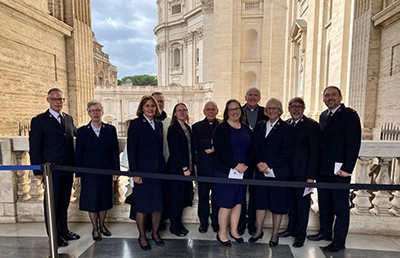
Andrew Morgan: Within days, a very clear message came through the words of a song from The Musical Salvationist: “Here am I, my Lord; send me.” We talked about it, prayed about it, and then contacted territorial headquarters. Six months later, we were in Budapest, Hungary.
How would you describe The Salvation Army in Italy and Greece?
DM: Here in Italy, very early on, we were struck by the passion of our officers for evangelism. There’s really a sense that evangelical Christians have something different to offer. The reality of relationship with Jesus is so important—that’s the most important message to give people.
AM: Until recently, the Italy and Greece Territory had been a command. So, one of the largest challenges we face is bringing about the changes in our governance structures and business practices that are required by the change to territorial status. A lot of the practical work I’ve been doing as territorial commander is helping to raise our profile in Italian society, ensuring that we are nationally viable and recognized.
In Greece, the Army is present in two cities: Athens and Thessaloniki. Each city has a corps and both are led by an officer couple who are Greek nationals. That’s a tremendous forward step—we’re very happy with that!
Where do you see the most opportunities for ministry?
AM: In the fall of our first year, we visited every corps and ministry unit in our territory and that was very helpful. Based on our observations from that tour, we realized there were three areas of need within society that The Salvation Army is equipped to respond to, and those are food, family and faith.
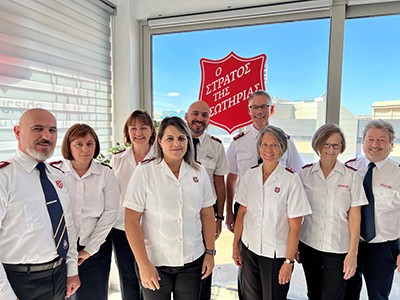
In terms of food: we have food banks and feeding programs. There are people who are hungry, not unlike the reality in our home country, so that’s a priority. Food is also so fundamental to Italian culture, gathering around the table for big family meals. Food and family go hand in hand. So, those who don’t have family have an opportunity to be included in a family of believers through Salvation Army corps. And of course, we do all this because of the faith we have in Jesus Christ. This is not just a faith of a Sunday ritual observance, but a faith that is alive and active.
How is the Army addressing social issues?
AM: In Italy, we’re best known for our large social services centre in Rome. We have 285 beds, residential programming in various capacities, a kitchen that provides meals every day, and we have social workers on staff. We have a small residential program in Florence, and some other properties that were used in responding to a migrant crisis in the south of the country that we’re now looking to repurpose to address needs there.
In Athens, The Salvation Army has a human trafficking response program called the Green Light Project. If you think of a red-light district, we’re offering a “green light” opportunity for those who are looking for assistance and a way out. Our work in this area is widely recognized for its best practices, such that we now have a partnership with a medical team who provide care to individuals in the area we operate in. In the red-light district, there are people who would not go to a hospital if they needed care because they would not be welcomed there and would be discriminated against. And so, our team of doctors and nurses will go and do triage and medical care on the street with us. That partnership further solidifies our place in social services in Athens. The level of trust extended to The Salvation Army is significant.
Where do you see God at work in your territory?
DM: For me, it’s the way our officers are committed to presenting the gospel. They are engaged in one-on-one ministry, whether that’s in the marketplace or the thrift store, wherever—that relationship-building is foundational. At headquarters, I see God at work as he guides us to serve with excellence and correctness. God is opening doors for us and closing doors that need to be closed.
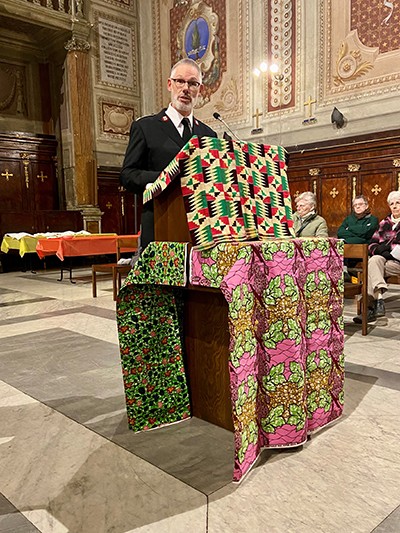
AM: One real issue that we don’t want to skirt or turn a blind eye to is corruption, which is a reality in many different areas. By this I mean the ways of working around the system to avoid engagement with government or taxes, for example. We are saying, no, we have to work above board in all things. Right at the beginning of our appointments, we established four pillars under which we would operate: honesty, integrity, transparency and accountability. And for the most part, this approach has been well received, and it’s helping to bring about a change of culture within our ministry and within the opportunities we have here.
Italy is a predominantly Roman Catholic country, while Greece officially recognizes the Orthodox Church as the “prevailing religion” there. What is it like being The Salvation Army in that context?
AM: In addition to being the territorial commander, I’m also the General’s representative to the Vatican. And the opportunities that provides are absolutely tremendous. The Salvation Army, internationally, has an ongoing dialogue with the Roman Catholic Church, and we hold a four- or five-day set of talks annually to discuss matters of theology and Christian faith and practice. And being in Rome, there are many other denominations that have a representative here. So, from an ecumenical perspective, I stand as a peer with them and have the opportunity to represent The Salvation Army and be our voice.
That said, the challenges of being a Protestant denomination in a Roman Catholic country are very real. We visited a former officer commanding a year ago—she was 99 years old, and she was imprisoned when she was 16 because of her faith. Fortunately, things are different today, but there are many people who carry wounds and hurts because of the Protestant faith that they professed.
In Greece, we have some limitations on our ability to preach the gospel publicly. It’s not an easy place to do ministry. But there are opportunities to partner with other Christians, and that’s something we are enjoying as part of our day-to-day ministry in Italy and Greece.
What have been some of the highlights of your appointments so far?
AM: Darlene and I have met the Pope on a number of occasions. That doesn’t happen every day as a Salvation Army officer!
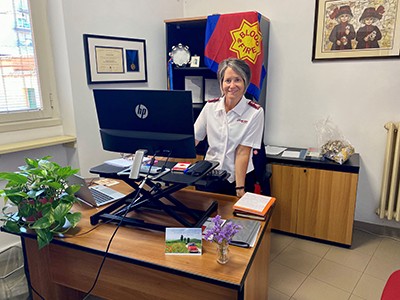
DM: For me, a highlight is just being part of The Salvation Army in Italy, taking part in their life and faith community. For example, when we’re visiting a corps, after the service they might have an “agape” meal—a potluck—that can go on for three or four hours. To be part of the Italian Salvationist culture is quite a privilege. Rome is very multinational, and at the Rome corps, we have open prayer time with prayers in Italian, Spanish, French, English, Portuguese. It’s really beautiful, like a foretaste of heaven.
And how is God moving in your lives as you minister in this territory?
DM: From day one, it’s been a sense of total dependence on God. He has to show us the way because there’s so much work to be done and it seems so complex. He reminds me every day that I have to relycompletely on him.
AM: Having declared publicly that we as The Salvation Army would strive to live under the pillars of honesty, integrity, transparency and accountability, I am dependent upon God’s equipping me, so that I can live out those values and be an example to those I lead. I believe that God is blessing our efforts, and we thank him for it and give him the glory.
Listen to the full interview with Lt-Colonels Morgan on the Salvationist podcast:
This story is from:




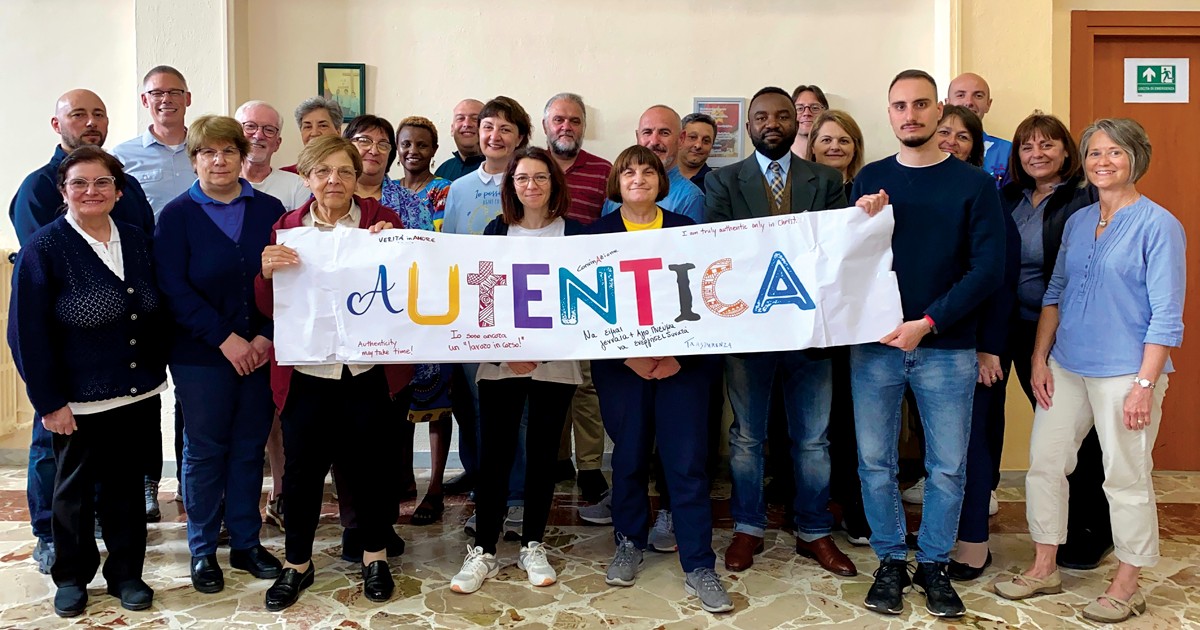


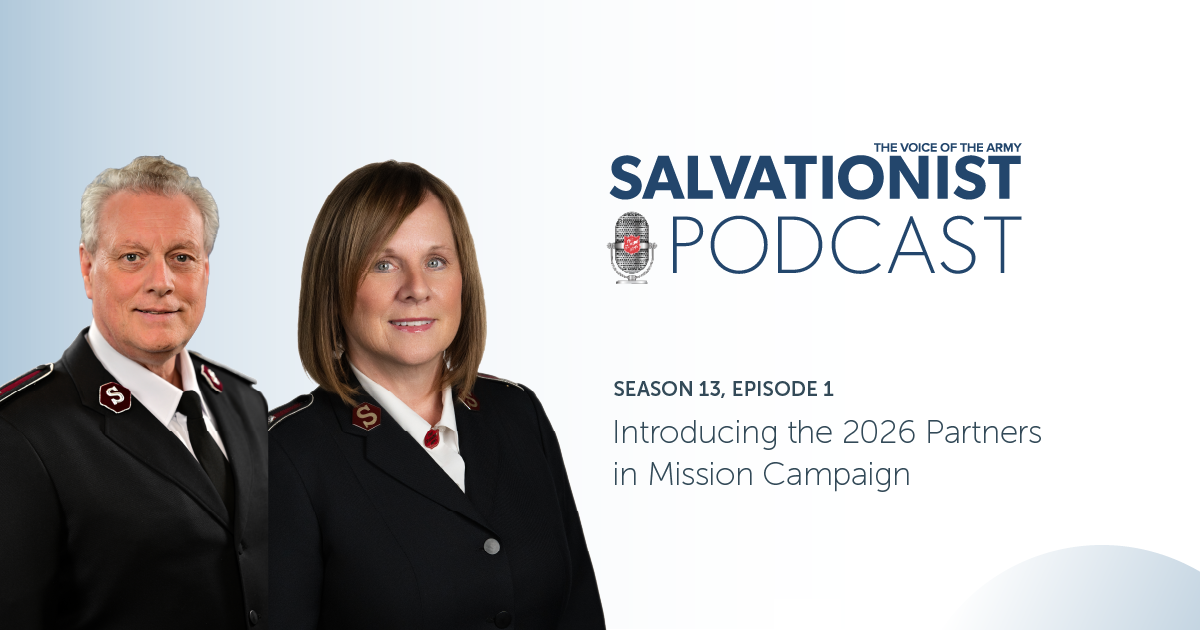


Having known the couple for many years, when we were all much younger, it is a joy to read of their faithful service.
Blessings are prayed for them,
Gwen and Robert (Redhead)
Having known them since we were all much younger, we thank God for them both and their service. Gwen and Robert Redhead